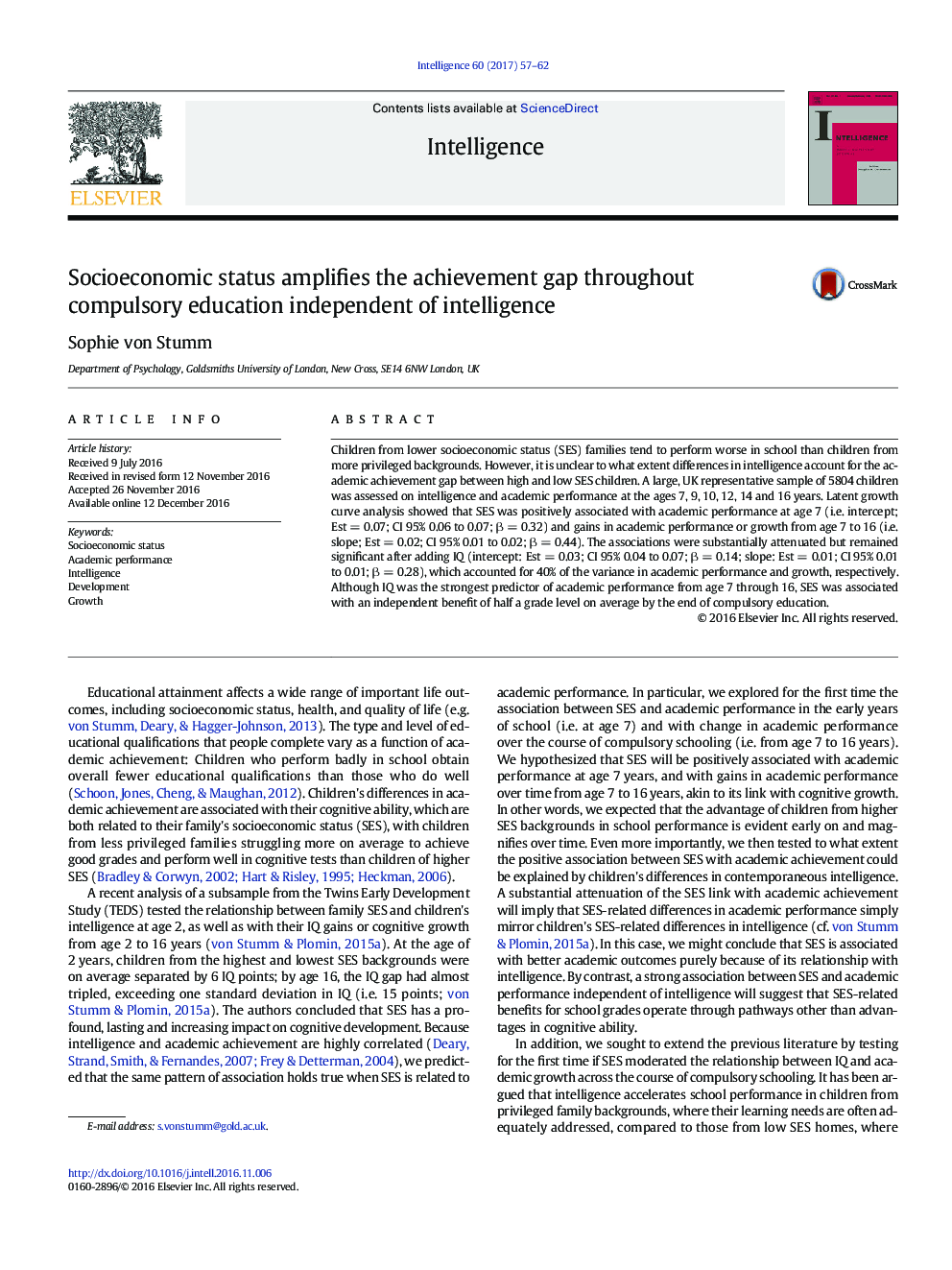| کد مقاله | کد نشریه | سال انتشار | مقاله انگلیسی | نسخه تمام متن |
|---|---|---|---|---|
| 5042122 | 1474256 | 2017 | 6 صفحه PDF | دانلود رایگان |
- SES increases the academic achievement gap from age 7 through 16.
- SES-related differences in academic achievement are partly independent of intelligence.
- SES affects academic achievement through pathways other than intelligence.
Children from lower socioeconomic status (SES) families tend to perform worse in school than children from more privileged backgrounds. However, it is unclear to what extent differences in intelligence account for the academic achievement gap between high and low SES children. A large, UK representative sample of 5804 children was assessed on intelligence and academic performance at the ages 7, 9, 10, 12, 14 and 16 years. Latent growth curve analysis showed that SES was positively associated with academic performance at age 7 (i.e. intercept; Est = 0.07; CI 95% 0.06 to 0.07; β = 0.32) and gains in academic performance or growth from age 7 to 16 (i.e. slope; Est = 0.02; CI 95% 0.01 to 0.02; β = 0.44). The associations were substantially attenuated but remained significant after adding IQ (intercept: Est = 0.03; CI 95% 0.04 to 0.07; β = 0.14; slope: Est = 0.01; CI 95% 0.01 to 0.01; β = 0.28), which accounted for 40% of the variance in academic performance and growth, respectively. Although IQ was the strongest predictor of academic performance from age 7 through 16, SES was associated with an independent benefit of half a grade level on average by the end of compulsory education.
Journal: Intelligence - Volume 60, JanuaryâFebruary 2017, Pages 57-62
